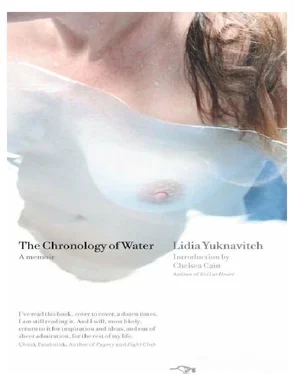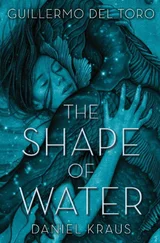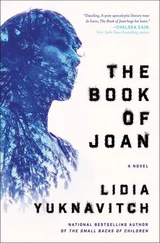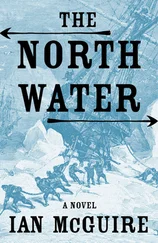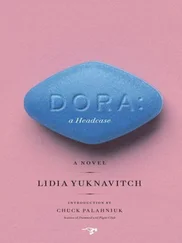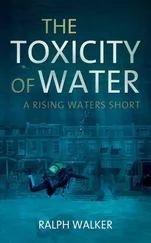NOT ALL MIRACLES COME FROM GOD OR LOOKING UP.
To say that what happened to me in the winter of my early thirties was a miracle is puny compared to what transpired. It started so small. In my hands. In that winter, I sent a short story out as a writing sample. The short story was called “The Chronology of Water.” I sent the story four places: to the Admissions Committee for the M FA in writing at Columbia University; to the hiring committee for a tenure track teaching position; to Oregon Literary Arts as a writing sample for a grant; to Poets and Writers as a writing sample for something called the Writer’s Exchange grant.
In the space of one month my mailbox presented me with letters exactly like the ones that had come to my home in Florida when I longed to swim to college. Only this time I was the only one who would read these letters, an adult woman who had put something of her busted up self straight no chaser into the world. They came one at a time — white and geometric and smelling of something like what if.
I was accepted into Columbia University.
I was offered the teaching job.
I was awarded a $3,000 grant for my story.
And I won the Writer’s Exchange prize.
All in the same month.
NOTHING in my life had ever happened to me like that. And most likely never will. Like the sea of my life waters had opened up. Like my wounds had something in them besides hurt.
Me being me, I chose the job over the MFA. This is important — the MFA was what I wanted more than anything. You have no idea. With all my broken little heart. But I couldn’t choose it. I had to survive, is what I chose. I had to take care of myself. No one else would. And so I swallowed the desire to name myself as a writer who would go to Columbia. Like the swimmer who couldn’t go to Columbia, either.
I took the grant money and bought a car. I wanted to go to Paris but I bought a car instead. A reliable car to get to and from work. I didn’t take myself out to dinner, I didn’t buy myself champagne, I didn’t eat chocolate.
Thank god the go to New York Writer’s Exchange prize didn’t have a practical alternative for self destructive people or I would have let that go, too. Almost in spite of myself then, I went to New York. Where the writers are.
The “prize” of winning a Writer’s Exchange grant from Poets and Writers is that you go from one state to another — in my case, Oregon to NYC. You get to choose writers you’d most like to meet and the Poets and Writers folks try very hard to arrange meetings. You get to give a reading at the National Poetry Club, you get to stay at the Gramercy Park Hotel and drink scotch into the night with smart cool people as if you are one too, you get to meet editors and publishers and writers and agents at very fancy lunches and dinners. How fancy? I kept the napkins and receipt scraps. From 1996.
The person who judged the contest on the fiction side of things was Carol Maso. I only entered because of her. Her writing was considered “experimental.” “Innovative.” “Heterodox.” All I know is that her weird made my weird feel better. The writers I wanted to meet were Lynn Tillman, Peggy Phelan, and Eurydice. I don’t know if you know them like I do, but to me they were the intellectual shit. I didn’t actually think it would happen, I just got drunk, wrote the names down on the form they sent, laughed, farted, and mailed it back to them. I remember thinking, fat chance. My ass. But Frazier Russell collected them all. This is how four of the most humble happy nights of my entire life happened to me. Dinners that cost more than my rent. Food that tasted so good I thought I might faint. Wine that made your teeth melt. And women so intelligent, so creative, so gorgeous and present in their own minds and bodies … I mean I nearly barfed, piddled, and orgasmed all at the same time. Fuck heaven. Puny cloud lie. These women were the loves of my brain life.
These four women wrote unconventionally. Intentionally unconventionally. Wildly, passionately, blood-bodied, unapologetically blowing up the house of language from the inside out, unconventionally. And all four of them insisted on the body as content. They were not mainstream writers. They were carving out astonishing paths of their own quite to the side of mainstream, quite in spite of the stupid mainstream, maybe the way water cut the grand canyon. I wanted my writing to go like theirs. Follow it. I felt like their writing had parted the seas for people like me.
I can’t tell you how many times I choked up talking to each of these women. Looking into their eyes. Trying to see an I. I don’t think I said much. It’s possible I went mute. It’s hard to remember anything about me. Though I remember nearly every word each of them said. Of this I am sure: I was never as … happy.
More magic happened on that trip — there was a poet guy who traveled with me from Oregon. He’d won the poet side of the prize. Turns out, I knew him from the Eugene days. Incredibly wonderful man stunning poet named John Campbell. Among the poets he requested was Gerald Stern, who I will never forget eating and talking with because he’d dislocated his shoulder and wore this sling thing all evening — only able to gesticulate with one arm. Still, he was something. We also lunched with Billy Collins and Alfred Corn. The latter I adored. The former talked to my tits. But my poet friend also requested to go to a jazz club in place of one of his writer choices. So I got to sit about 15 feet from Hamiet Bluiett at one club and about five feet from McCoy Tyner at another. I’m pretty sure when I got back to the hotel that night my underwear was soaked to shit from glee. Thank you forever, John Campbell.
What an opportunity, huh? Oregon writers in the big city. Still makes me smile and get a piss shiver remembering it.
But there is a bittersweet in my throat too. A small stone I carry there. The small stone of sad that came from my inability to say yes. I was taken to meet an editor at Farrar, Strauss and Giroux. He talked to me about my life as a swimmer, and he suggested I had a nonfiction book in me about my swimmer’s life. I don’t know, say, like a memoir. I stood there like a numb idiot smiling and shaking my head with my arms crossed over my tits. He waited for me to jump at his suggestion. Nothing nothing nothing came out of my throat. He shook my hand and wished me luck. He gave me some free books.
I sat at dinner between Lynn Tillman and the beloved W. W. Norton Editor Carol Houck Smith — who sadly has since died — while Lynne tried to convince Carol to publish me at Norton. Carol Houck Smith, who leaned over and said well then send me something. Her bright fierce little eyes staring right through my know nothing skull. Most people would have stepped off the plane back in Oregon and run to the post office. It took me over a decade to even imagine putting something in an envelope and licking it.
After the reading at the National Poetry Club, the agent Katherine Kidde from then Kidde, Hoyt and Piccard came up to me and asked me if I’d like representation. On the spot. My small sad throat stone. I went deaf and smiled and shook her hand. I thought I might cry in front of all the dressed up people. All that came out of my mouth was “I don’t know.”
She said, “OK then.”
All those open hands held out to me.
You see it is important to understand how damaged people don’t always know how to say yes, or to choose the big thing, even when it is right in front of them. It’s a shame we carry. The shame of wanting something good. The shame of feeling something good. The shame of not believing we deserve to stand in the same room in the same way as all those we admire. Big red As on our chests.
Читать дальше
